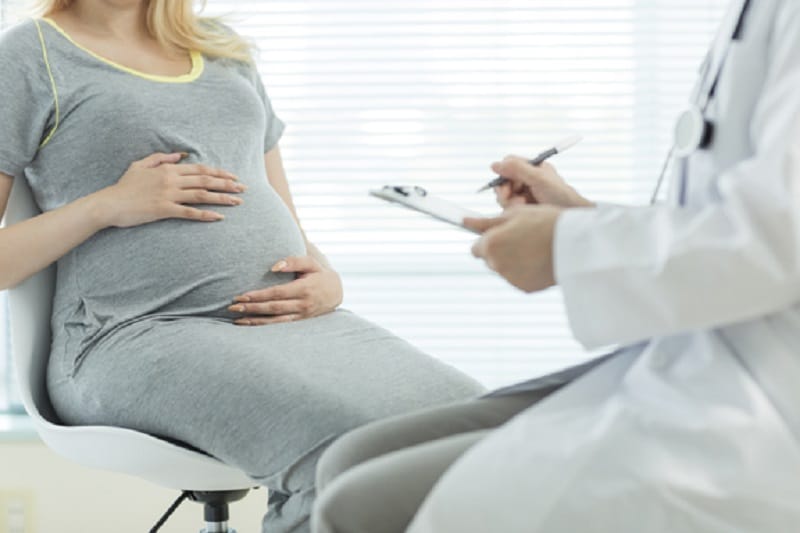
 Home Pregnancy Tests have come a long way and are 99% accurate, that being said it depends on how and when you took the test.
Home Pregnancy Tests have come a long way and are 99% accurate, that being said it depends on how and when you took the test.
According to the Mayo Clinic, there are plenty of claims by companies that their home pregnancy tests are accurate as early as the first day of a missed period, and even earlier than that. However, the results are more reliably accurate when the test is taken after the first day after your missed period.
The test is measuring the HGC (Human Chorionic Gonadotropin) hormone in your urine that increases with pregnancy. Home tests offer privacy and almost immediate results. This gives you an opportunity to take care of yourself and your unborn child as soon as possible. The drawback if you get false-negative results, you may actually be pregnant and you may postpone seeing a medical practitioner or taking care of yourself.
The Home Pregnancy Test with a positive result should not replace seeing a medical practitioner and getting an exam and consultation including a complete prenatal check-up. If you get a negative result and still do not get your period it is advisable to consult your practitioner to find out what is going on.
First Prenatal Visit

Usually, at your first prenatal visit, your doctor will do a urine test to reconfirm your home pregnancy test results. The office urine test is like the home pregnancy test in that it checks the HGC levels in the mother’s urine but it is accurate as early as 7 to 10 days after conception.
Your urine will be checked for glucose (sugar), protein, and possibly ketones and bilirubin. Your blood pressure and temperature will be noted and monitored. A blood test will be ordered to check your thyroid, red blood cell levels, hematocrit, and hemoglobin.
You will be asked to give a medical history along with your gynecological and obstetrical history. You will be asked about your menstrual cycle, your last period, how regular your periods are, previous miscarriages and pregnancies, etc. It is not uncommon to be asked questions about the baby’s father’s medical history. This may include questions about twins in the family.
You will be asked questions about your health if you smoke or drink alcohol, and what if any, signs of pregnancy you may be experiencing. Your doctor will do a pelvic exam using a speculum as well as a physical internal exam. Your breasts may be checked at this time. If you do not know how to self examine your breasts ask your practitioner to show you.
Some signs of pregnancy are:
- A softening of the uterus and cervix can be detected between 2 to 8 weeks after conception.
- An enlarged uterus and abdomen are seen between 8 to 12 weeks of pregnancy, although the other possible cause of this can be a tumor or fibroids (non-cancerous growths in the uterus).
- Fetal movements are first noted between 16 to 22 weeks of gestation. They are often described as a fishtail or butterfly flutters, the movement gets stronger and feels more like kicks. They are more pronounced and come more often as the baby grows. From the time of the first fetal movement, it is approximately five more months of pregnancy to full term.
- Ultrasound visualization of the embryo or gestational sac.
- Fetal heartbeat usually detected by a fetoscope or seen in an ultrasound around 10 to 20 weeks of gestation.
You will be given a pap smear and a culture will be taken to detect any vaginal infection or fungus in your uterus or sexually transmitted diseases.
How to Estimate Your Due Date

The due date of your baby is estimated by your last menstrual period. The average pregnancy is 280 days, or 40 weeks, from the first day of your last menstrual period. For a woman who has regular periods, conception usually takes place about 11-21 days after the first day of your last period. This is because most women ovulate at this time and if intercourse coincides with ovulation you have a higher chance of getting pregnant, provided you do not use contraception.
Many women do not know the exact day of conception because they do not know when they ovulate combined with the fact that conception can happen before and after ovulation. The sperm can live in the woman 3 to 5 days after intercourse.
Women generally give birth plus or minus two weeks of their due date. That means if July 14 is your due date your baby can come July 1st at the beginning of your 38th week or July 28th at the end of your 42nd week. Only 4 out of 100 women give birth on their due date.
It is not advisable to depend on your due date as something written in stone. Practitioners usually refer to it as your EDD – Estimated Due Date with a big emphasis on estimated.
To figure out your due date count seven days from the first day of your last menstrual period and count back three months. If your last menstrual period was January 1st, 2020, add seven days – January 7th. Count back 3 months (December, November, October = October 7. Your Due Date will be October 7th, 2020.
If your last menstrual period was the end of the year, for example, August 1st, 2020, count seven days, August 8th, go back three months (July, June, May) to May 8th and add a year – 2021. Your due date would be May 8th, 2021.
Doctors and midwives have these little spinning discs that they check every time you visit to calculate where you are in the pregnancy, and or how many weeks you are along. Today there are numerous apps that can calculate your due date based on the first day of your last period, as well as indicate where you are in your pregnancy. The app compensates for longer and shorter months.
Choosing Your Practitioner
In many cases, it takes two individuals to create a baby, the mother, and the father, but to get from conception to birth it may take more people. You need someone to monitor you through the pregnancy, and someone to help you deliver the baby as well as monitoring you through delivery and after birth. That is not always the same person.
When I lived in the U.S. my obstetrician was supposed to deliver our baby but he was busy delivering another woman who needed a C-section and the midwife delivered our son. Our next baby was born at home with the same midwife who monitored my pregnancy. I now live in a country where there is socialized medicine and an obstetrician monitors your pregnancy and baring the need for more intervention, a nurse-midwife delivers babies in the hospital. The trick is matching yourself up with someone you trust and like and understand that the best-made plans of mice and (wo)men, something may not go as you had planned.
During my first pregnancy, I read up and talked with other women about pregnancy. I took childbirth preparation classes. I learned what high-risk pregnancy meant so that I could understand my options. Although I am very positive and optimistic I wanted to be informed so that I could make educated choices for myself and our baby.
Choosing the right practitioner is very important to most women. If the baby’s father is involved he also needs to be comfortable and given an opportunity to develop a patient-practitioner relationship. This is not only important during pregnancy and birth but also once the baby is born. Having a relationship with your baby’s practitioner will also be important. Get in the habit of sharing what is crucial to you with your partner, and listen to what is important to them, so that they can both advocate for each other and your baby.
If you have a question write it down and ask next time you visit your practitioner. Sometimes the nurse can also be very helpful. Remember no question is too stupid to ask. The only wrong question is the one you did not ask. It sometimes is more helpful to make it a habit of asking your questions not while you are laying on a table with your feet up in the air half-dressed. Take the time to get dressed and sit down so that you can focus on what the practitioner is saying. Sometimes it is helpful to go to checkups with someone else who may remember exactly what the doctor said or what she wants you to do next.
What to Expect from Routine Visits

For a woman, without any special high-risk factors the prenatal visits will be scheduled once a month up to the 28th week, generally bi-monthly visits until the last month, and then weekly visits in the last month.
At each visit, you will be weighed. Your blood pressure will be checked and high blood pressure can be a concern during pregnancy. After the10th week, the baby’s heartbeat will be listened to. The practitioner will check the size of your uterus as an estimate of fetal growth.
A urine test will be taken to detect glucose and protein or blood in the urine. You will be monitored for edema, excessive fluid. Are your ankle swollen, are your fingers puffy. It is not uncommon to see pregnant women wearing their wedding bands on a chain around their necks. Further tests like an ultrasound or glucose challenge test (GCT) may be done during the course of the pregnancy.
Initially, you may be tired, nauseous, you may find yourself urinating more and needing the bathroom. You may have a heightened sense of smell, food aversions, or cravings. Although it is more common in women who have breast changes prior to menstruation, changes in your breast, like tingling, fullness, darkening of the areola (nipple area) can happen.
Across cultures and countries, women are recommended to not drink alcohol or smoke or do drugs if they are planning a pregnancy or are pregnant. It has been documented that continuing to smoke particularly beyond the fourth month can increase a wide variety of complications. The lungs of a baby do not expand in utero. The baby gets her oxygen from the mother’s bloodstream that first comes from the mother’s lungs. Alcohol can go through the mother/baby placental barrier as well as many drugs. Learn to check labels if you are taking medication and consult your physician.
Warning Signs
If you develop any of the following signs contact your practitioner. You may need medical intervention and do not delay in getting help.
- Severe or persistent headache
- Persistent vomiting and inability to keep anything down above normal morning sickness
- Fever above 40 degrees Celsius (101 degrees F)
- Once you start to feel fetal movement, marked decrease in fetal movement or total stop of any movement
- Vaginal bleeding
- Gush/strong flow of watery fluid from your vagina
- Decrease in urinary output
The fear of an ectopic or tubal pregnancy lurks in anyone’s mind who is aware that this can happen. This is abnormal implantation that does not occur in the uterus, it is usually found in the fallopian tubes. After the eighth week of pregnancy if you did not have this complication you need not worry about it. Only 1 in 100 pregnancies are ectopic. It happens more often in women who have already had an ectopic pregnancy, previous pelvic inflammatory disease, an IUD in place when conception happens, or previous abdominal or tubal surgeries with postoperative scarring, endometriosis, or fertility problems. Consult your physician if you are having any concerns.
I would like to leave you on a more positive note. Most women who take care of themselves end up with a healthy baby. So get pregnancy care early. Eat a well-balanced diet to ensure you get the vitamins, minerals, and nutrients needed for proper growth. Gain enough weight but not too much. Enjoy the journey and try to destress as much as possible.
